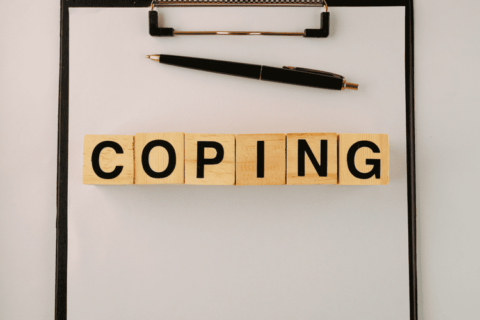Managing Fear and Anxiety
Fear and anxiety are common emotions that everyone experiences. While they can be helpful in small doses, these feelings can also significantly impact your overall well-being if left unchecked. Understanding the differences between fear and anxiety, recognizing their symptoms, and learning how to manage them effectively are essential for maintaining good mental health.
Differences between Fear and Anxiety
The terms fear and anxiety are often used interchangeably, but they have a few key differences. Fear is an emotional response to a specific, identifiable threat, such as a dangerous situation or object. On the other hand, anxiety is a more generalized feeling of worry, unease, or nervousness not necessarily tied to a specific threat. Anxiety can be more pervasive and long-lasting than fear, but both can impact various aspects of your life.

The Effects of Fear and Anxiety
Fear and anxiety can affect your body, mind, and emotions.
- Physically, these feelings can lead to headaches, fatigue and difficulty relaxing or sitting still.
- Mentally, they can cause racing thoughts, cognitive impairment, and a sense of impending doom.
- Emotionally, fear and anxiety can lead to impatience, sadness, and emotional exhaustion.
Some people also respond to fear and anxiety by having panic attacks, which can be physically, mentally, and emotionally overwhelming.
Symptoms of Fear
When you’re afraid, you may experience the “fight or flight” response, a physiological reaction to a perceived threat that prepares the body to confront it (fight) or escape it (flight). The symptoms of this include:
- Feeling a sense of danger or threat
- Increased heart rate
- Rapid breathing
- Sweating
- Trembling or shaking
- Feeling weak or dizzy
- Nausea
Symptoms of Anxiety
If you’ve ever wondered what anxiety feels like or how to know if you have anxiety, consider these symptoms:
- Persistent worry or feeling on edge
- Difficulty concentrating
- Irritability
- Restlessness
- Sleep disturbances
- Fatigue
- Muscle tension
How to Overcome Fear and Anxiety
Managing these strong emotions isn’t always easy, especially when scary or stressful things happen. However, with the right skills, you can get rid of fear and anxiety so they don’t take over your life. Here are 12 ways to keep these feelings in check:
- Notice how you feel: Be mindful of your emotions and physical sensations by tuning in to your body and thoughts. Figure out what anxiety feels like for you. Developing this awareness can help you identify when you’re having an anxiety attack or overwhelming fear response, giving you a starting point to address these emotions.
- Own it: Acknowledge your fear or anxiety and accept that it’s a natural part of the human experience. Understanding that these are normal emotions can help reduce their power over you and create a foundation for overcoming them.
- Slow your breathing: Practice deep, slow breaths to help calm your nervous system and help your body feel less anxious. The 4-7-8 technique is particularly effective. To do this, first sit or lie down in a comfortable position. Close your eyes and take a deep breath, exhaling completely through your mouth. Next, close your mouth and inhale through your nose for a count of four. Hold your breath for a count of seven, and then exhale through your mouth for a count of eight. Repeat this cycle three more times to complete the exercise.
- Work through fearful thoughts: Consider the root of your fear or anxiety, and you may find that your feelings are unfounded or can be resolved with proper planning and problem-solving.
- Counterbalance negative emotions with positive predictions: By consciously challenging your negative thoughts and replacing them with optimistic ones, you can live with hope in your heart rather than anxiety.
- Get physical: Engaging in physical activity helps release pent-up energy caused by the fight or flight response. Lifting weights, taking a brisk walk, or playing with the dog distracts you from your fear and anxiety and releases endorphins to improve your mood.
- Stay busy: Immersing yourself in hobbies, family activities, or social events prevents you from ruminating on your fear and anxiety. This gives your mind a break from these challenging emotions and helps you enjoy yourself.
- Seek out laughter: Find humor and joy by watching a funny movie, attending a comedy show, or spending time with friends who make you laugh. Laughter and play are inborn ways to counteract fear, relieve stress, and reduce anxiety because they release endorphins, activate the relaxation response, and distract you from negative thoughts.
- Address your biological needs: Make sure you get enough sleep, eat a balanced diet, and stay hydrated, as these factors can impact your mental health. After all, a well-rested, well-nourished body is better equipped to manage fear and anxiety than a sleep-deprived, underfed one.
- Do a self-check-in: Regularly assess your mental and emotional state, taking note of any concerns or stressors that may contribute to your fear and anxiety. This self-awareness helps you identify patterns and triggers, giving you valuable information for addressing difficult emotions.
- Determine the best course of action: Develop a plan to address the sources of your fear and anxiety. This may involve problem-solving, seeking support from friends or family, learning new coping skills, or setting achievable goals. Having a clear plan can help you feel more in control as you seek to live in harmony with your emotions.
- Get professional help: If fear and anxiety are overwhelming or persistent, don’t hesitate to seek help from a therapist or counselor. This mental health professional can offer guidance, support, and evidence-based interventions to help you cope with your emotions.
Contact a Mental Health Provider in Brevard County
Managing fear and anxiety is essential to live a more balanced, contented life. At Brevard Health Alliance, we understand that mental health is just as important as physical health. Our integrated mental and behavioral healthcare providers address the unique needs of each individual by providing compassionate, personalized care that goes beyond traditional approaches.

















































































































































